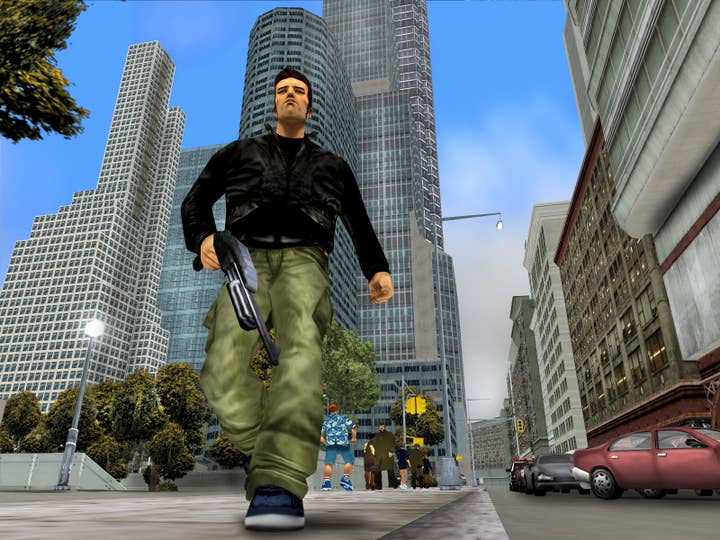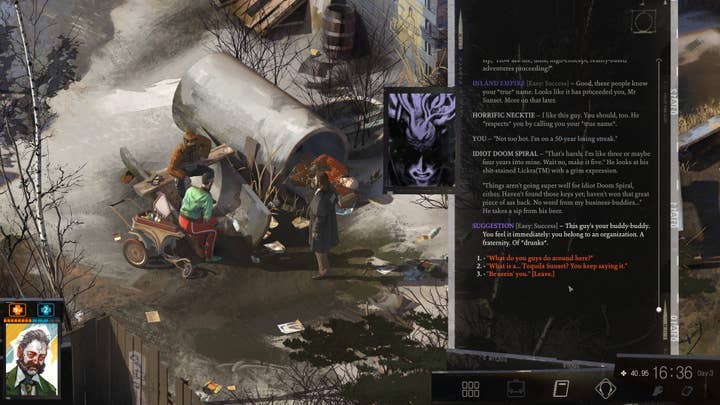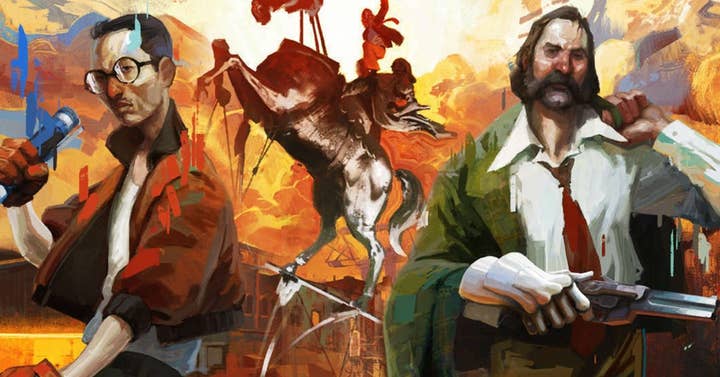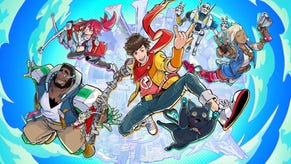"Don't edit your games for Australia" | Opinion
Having submitted over 100 games for classification in the region, Leigh Harris shares how Disco Elysium's ban represents a long-running problem
Twenty years ago, when I first started in the games industry, I was 17 and Grand Theft Auto III was being raked over the coals.
There had been moral panics about video games before (Mortal Kombat and Carmageddon leap to mind), but GTA III being pulled from shelves in Australia was a real awakening for our industry. It had to be re-released in an edited form, and that whole process was not a trifling matter for those of us involved.
In the first few years of my career, working in PR at Rockstar Games, the hits kept on coming. I was submitting games for classification during the time when an edited version of Vice City released, Manhunt was yanked from store shelves, and a nice warm cup-o-joe became all the rage.

You can argue until you're blue in the face about the cultural value of these games, but the point we kept on coming back to in all our discussions with and about the Australian Classification Board (then the Office of Film and Literature Classification or OFLC) was: why is this content so much more heinous than the stuff we're seeing in films?
At the time, games couldn't be awarded an R18+ ratings. Games could be rated up to MA15+, or they were 'Refused Classification.'
In practice, games which were rated for adults overseas were routinely waived through our classification system with an MA15+ rating and were therefore more easily able to be accessed by minors. It was only the very few titles which got singled out for sometimes bizarre reasons (The Elder Scrolls IV: Oblivion in particular felt like a rollercoaster of absurdity) that ever got RC'd and wouldn't become available here.
There was a monumental effort by publishers, players and the Interactive Games and Entertainment Association to get our politicians to get the ratings system changed to allow games to receive an R18+ and they won.
But the guidelines for how members of the Australian Classification Board retained some curiously didactic rules which remain in our guidelines to this day: sex, nudity and drug use cannot be linked to incentives or rewards.
Don't edit your games to accommodate those guidelines. Make the beautiful, wonderful visions you set out to make and if your work causes another Disco Elysium debacle, it'll be worth it
An omission which led Dr Jeffrey Brand from Bond University to once memorably state at a Freeplay Festival panel in Melbourne: "We haven't made any progress at all." It was a sentiment which flew in the face of the general conviviality at the arrival of an R18+ rating, but he was right.
Australia has continued to see the same pattern of most games getting in as they do in most other countries with similar ratings (albeit now with a more appropriate R rating for them), and an odd one or two being singled out and not released here for reasons that often defy logic.
With Disco Elysium: The Final Cut getting the RC treatment, it seems as good a time as any to reminisce about the state of things here.
Now, I'm paraphrasing our guidelines when I talk about sex, nudity and drug use above. But that's the gist of it: if you want include depictions of those things, players can't get rewarded for doing them.
I don't know about you, but I recall plenty of films where such things were portrayed as fun, positive things. I also remember plenty where they were difficult, destructive behaviours.
Implicit in the assumptions in our guidelines is the notion that if there's a gameplay incentive tied to an act deemed immoral, that the game is therefore endorsing that act.
But what if the character was portrayed as flawed and therefore it was ok? What if the character got a bonus in the short term, but got their comeuppance? What if they learned their lesson?

What I really want to ask is: why are moral strictures being placed upon games in Australia more than other forms of media? The guidelines are impersonal and devoid of the context of the work. And it leads to downright strange situations like the one being faced by Disco Elysium.
These arguments have always hinged on absurd notions that breaking a rule around a bad act and a reward MUST be somehow damaging to children (and naturally it's only ever children who play games). But seeing a BAFTA award-winning, wildly successful game get knocked back isn't because this game is a danger to society -- it'll be because of a technicality to do with incentives tied to acts deemed somehow immoral.
Australia has continued to see the same pattern of an odd one or two games being singled out and not released here for reasons that often defy logic
The RC report for Disco Elysium: The Final Cut reads that the game was Refused Classification because it a game that "depicts, expresses or otherwise deals with matters of sex, drug misuse or addition, crime, cruelty, violence or revolting or abhorrent phenomena in such a way that they offend against the standards of morality, decency and propriety generally accepted by reasonable adults to the extent that they should not be classified."
Guess I'm not very reasonable.
And neither are the BAFTA judges. Those notoriously revolting and abhorrent judges (tsk tsk) who don't represent the standards of morality, decency and propriety generally accepted by reasonable adults.
I got asked if I wanted to write an opinion piece on this, and even though I haven't submitted a game to be classified through our age rating system in quite some time, I said yes. I said yes because this was a patently ridiculous situation -- one of the in-your-face obvious examples of our age rating guidelines being out of step with reality.
And it reminded me of a time when I had a fire in my belly and loved fighting for the medium I believed in. It felt like we were so close to getting our country's ratings in line with the rest of the world's equal treatment of games and films as cultural products which didn't need to have their content dictated by appointed moralists.

I said yes because I felt like I had the unique perspective of being fatigued by these arguments. I felt like if I reminisced about these same discussions being had more than half my lifetime ago, I could highlight not just the absurdity of this one unjust instance with Disco Elysium, but of a pattern of these kinds of things that I can trace back to when I still thought wearing trench coats was cool.
I've long since moved on from having this kind of role. I've nominally had to submit games for age ratings here and there as an indie dev, but I'm now a senior game designer working for a AAA company.
So I'm quite far removed, but what I want to say to developers and publishers concerned about the Australian market is this: don't edit your games to accommodate these guidelines. It's still a relatively small market, you can afford it. Make the beautiful, wonderful visions you set out to make and if your work causes another Disco Elysium debacle, it'll be worth it. It results in headlines like this over at The Guardian that keep the pressure on. It pushes people to bring our classification system up to speed with the rest of the developed world.
For more on what needs changing, check out this submission by the IGEA.
Leigh Harris is a former journalist and PR based in Australia, currently working as a senior game designer at Wargaming. Opinions expressed in this article are his own and do not represent Wargaming.




-(1)_16x9.png?width=291&height=164&fit=crop&quality=80&format=jpg&auto=webp)



